So far, only Restoration Council of Shan State (RCSS) has come out with its statement on 74th Shan National Day, which it called Shan State National Day. Other might as well follow but let us look at what it has to say.
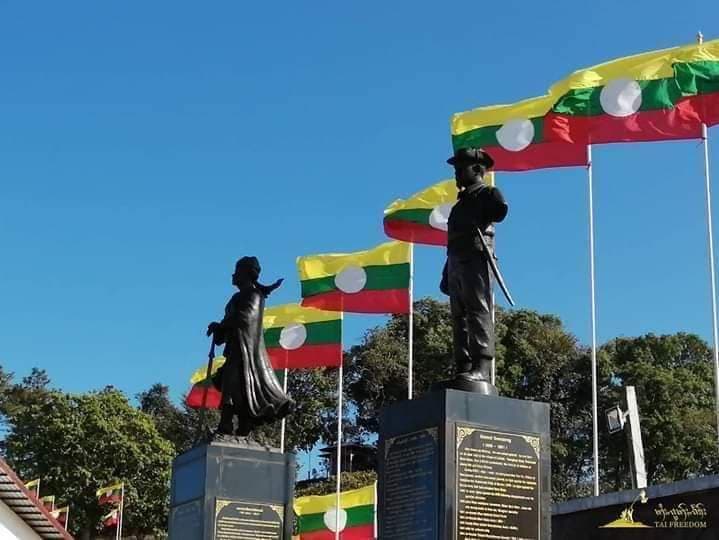
The gist six-point RCSS statement writes:
- due to the Covid-19 pandemic the celebration can’t be organized grandly as previous year;
- the Burmese military or Tatmadaw coup negatively affected the peace process, building of federal union and trust between the two sides (RCSS & Tatmadaw);
- will closely watch until the new government is formed and during interim period implementation of peace process will be according to the bilateral (ceasefire) agreement;
- to be able to establish a federal union, it will join hands with all ethnic nationalities within Shan State and the whole Union, including all ethnic armed organizations (EAOs) and ethnic political parties (EPPs);
- to benefit the people of Shan State, it will join hands with ethnic armed organizations within Shan State on the principle of mutal trust, unity, understanding and respect; and
- will implement unilateral ceasefire with Ta’ang National Liberation Army (TNLA) from February 7 to 21 May, in an attempt to meet formally and conduct peace talks.
The statement is a welcome move, as it covers all important issues affecting the whole country, from preventive measures to fend of Covid-19 during national day celebration, negative outcome of the Tatmadaw’s military coup, disappointment of the inability to form the people’s elected government, unity of ethnic nationalities in Shan State and countrywide, necessity to cooperate with all EAOs within Shan State, and most importantly, the reconciliation move to end the inter-ethnic conflict between the RCSS and TNLA.
The clashes between the two parties have burdened the people as thousands have to flee, their livelihood disrupted or destroyed, and their lives put in harm’s way. Ironically both claimed to be working for the people and protect them. But the reality is just the opposite and because of this the warring parties will have to come to term to live side by side at least with understanding if not in real complete harmony.
Thus, the RCSS overture is a welcome move and the TNLA should grab it. After all the Paluang or Ta’ang has lived harmoniously all through out the history until 2015, and even the declaration of the Shan State as a nation in 1947 is signed by Palaung Sao Hpa Khun Pan Sing, complete with Shan National Flag and Shan National Anthem.
There is two points on why the Ta’ang and Shan or Tai should stick together.
One is Shan State is a multi-ethnic state and the habitation of both ethnic groups are overlapping and intermingled, which couldn’t be neatly demarcated, except for certain concentrated areas where the Palaung may have concentration of majority, like Palaung Self-Administered Zone.
Another is why can’t the Shan and Palaung live in harmony together like during 1922 to 1947 when Shan State was known as Federated Shan States. While at that time all were under the British, the sense of belonging together were paramount and never was a problem. This was demonstrated with the forming of Shan as a modern nation in 1947, signed by the Palaung Sao Hpa and not anybody else.
And to make the long story short, the Shan State joined Burma Proper or Ministerial Burma to achieve a joint-independence from the British in 1948. But the promises and agreement of Panglong Agreement of 1947, which was and is the only legal bond between the Hill people (Kachin, Chin and Shan) and Ministerial Burma, to be equal and vested with rights of self-determination, have never been adhered or fulfilled by the Burmese center.
Because of this all ethnic nationalities are waging a resistance war to wrestle back their birthright sovereignty and rights of self-determination.
But the goal-setting of the ethnic nationalities, for the moment, is to realize their aspirations through the formation of a federal union, which the two Bamar players, the Tatmadaw and National League for Democracy (NLD), are paying only lip-service without concrete commitment.
The majority of ethnic nationalities want an equitable federal union based on 1947 Panglong Agreement, 1947 Union of Burma Constitution, and 1961 Federal Amendment Proposal with innovation to be in tune with the recent era to realize their aspirations.
But the two Bamar players want a unitary system of government, with Bamar supremacy in tact and don’t want to do anything with the three historical documents mentioned above. The ethnic nationalities rightly see both players as wanting only to devolve minimum political decision-making power to them, with some federal trappings at the most and nothing more.
The Bamar political class and the military have to bear in mind that breaching or ignoring the historical treaties amount to the nullification of the bond between the ethnic nationalities and Bamar. And if the attempt is made to do away with the treaties, the deliberation to forge a real voluntary union will only go down the drain. This has to be clear.
In sum, it is good that on the RCSS 74th Shan National Day statement opens the way to build unity among Shan people, including a wider countrywide cooperation with all the other ethnic nationalities, including the Bamar, to achieve peace and reconciliation and eventual establishment of a federal union.
It is high time that all people take heed and join hands to realize the federal democratic union envisaged by our founding forefathers, if we don’t want to see the dismemberment of the country like former Yugoslavia or Soviet Union.





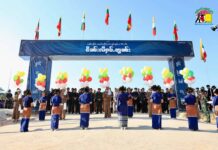

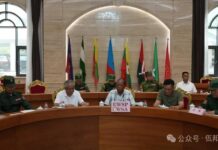
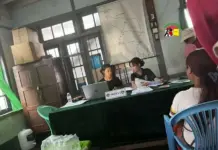
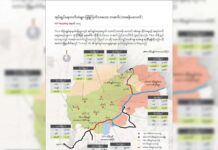






Leave a Comments